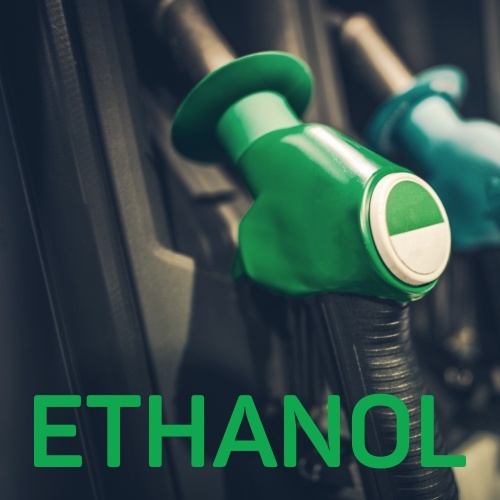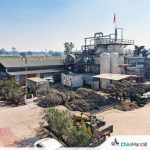New Delhi: The India – Brazil Seminar “Sustainable Mobility: Ethanol Talks II”, organised by the Government of Brazil, in partnership with the Society of Indian Automobile Manufactures (SIAM), the Brazilian Sugarcane Industry Association (UNICA) and Brazil’s Ethanol Cluster (APLA), ended yesterday after two days of policy-making and technical discussions. It has contributed to set a new benchmark for interinstitutional collaboration between public and private entities of both countries in the field of ethanol. Not only because of the high-level participation, showing political will to exchange views and lessons learned about this low-carbon fuel, but especially because the stakeholders are engaged and keen to cooperate.
“The success of the Brazilian ethanol program is visible for all to see. Brazil has set a benchmark for other countries in making the sustainable mobility sector with help of the agriculture sector,” said H.E. Mr. Hardeep Singh Puri, Union Minister for Petroleum and Natural Gas (MoPNG), Govt of India.
Whereas India may reap the benefits of the Brazilian experience with ethanol fuel to boost its own industry, Brazil considers that supporting the Indian ethanol production will help to advance its goal in turning this low-carbon fuel into an international commodity.
“Ethanol becoming a commodity will benefit developing tropical countries. We believe that together we can start this strongly,” said H.E. Mr. Andre Aranha Corrêa do Lago, Ambassador of Brazil to India.
“Bioenergy contributes to energy security, economic growth, creation of jobs and the generation of wealth in the countryside,” said H. E. Mr. Bento Albuquerque, Minister of Mines and Energy (MME), Govt of Brazil.
“India and Brazil have a mission to share the experience of ethanol with other countries. We are saying that we are part of the solution”, said Mr. Evandro Gussi, President, Brazilian Sugarcane Industry Association (UNICA), Brazil.
“Sustainable Mobility: Ethanol Talks II” keeps up with the pace of change in the ethanol regulation in India. It builds upon the outcomes of the first “Ethanol Talks” in early 2020, when public and private entities from both countries established a new channel for interinstitutional collaboration.
Furthermore, last year India and Brazil signed a bilateral Memorandum of Understanding (MoU) on Bioenergy Cooperation, aiming to “promote the production and use of biofuels, including ethanol” by taking into account “the experience accumulated by both countries.” Three months ago (August), the first meeting of the Joint Working Group created under that MoU has highlighted ethanol fuel as a priority for the bilateral cooperation.
In Brazil, a lasting policy that mandates the blending of ethanol in gasoline has allowed the country to become the world’s second largest producer and exporter of ethanol. The country presents the largest proportion of ethanol consumption in its transport matrix and about 85% of Brazilian fleet are flex fuel.
“In the beginning we were just producing sugar, now there is a whole production chain (…) if you think it over, the evolution in the last 50 years, we needed to install and produce more ethanol and then when we wanted to move into flex fuel, adding more technology. (…) We are now producing ethanol with residues too with second generation ethanol,” said Mr. Flavio Castellari, Executive Director, Brazilian Ethanol Cluster (APLA), Brazil.
India has also accelerated its pace of ethanol uptake by recently advancing its 20% blending target (E20) from 2030 to 2025. There is now a renewed impetus given by the Indian government for deploying flex-fuel engines across all vehicle segments to increase the adoption rate of this alternative fuel.
“It is very important that we establish emission limits that take into account the differences that exist between ethanol and gasoline. (…) the combustion of ethanol produces nonreactive hydrocarbons (acetaldehydes) different from the reactive hydrocarbons emitted by gasoline (formaldehydes). (…) The relative toxicity of acetaldehydes is over 40 times less toxic than formaldehydes”, said Dr. Plínio Nastari, President & CEO, Datagro, Brazil.
We envisage five areas of cooperation where India and Brazil can build upon for sustaining existence of mankind for long period of time – public policy prescriptions for sustainable mobility goals; standardisation, regulation making and related challenges of emissions cycles; technology and R&D (including fuel cell technology); awareness creation and education for public as well as supply chain actors; and continuous exchange of information through the establishment of a Centre of Excellence,” said Mr. Prashant K. Banerjee, Executive Director, Society of Indian Automotive Manufactures (SIAM), India.
The two-day webinar was successful in identifying complementarities, filling knowledge gaps and mapping a future course for the ethanol markets of India and Brazil. The webinar has also spread awareness on the accomplished environmental, economic and social benefits of ethanol production and its use in the transport sector with the aim of increasing consumer adoption for the fuel.
According to the organisers, the series of “Ethanol Talks” will continue promoting a substantive dialogue between policy makers, regulators, industry representatives and technical experts in the ethanol sector of both countries.












